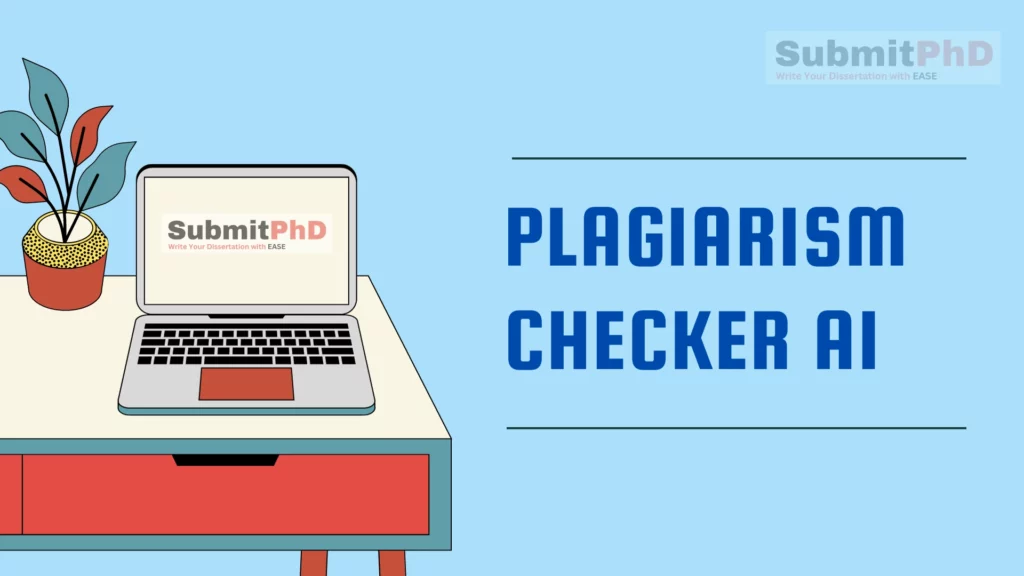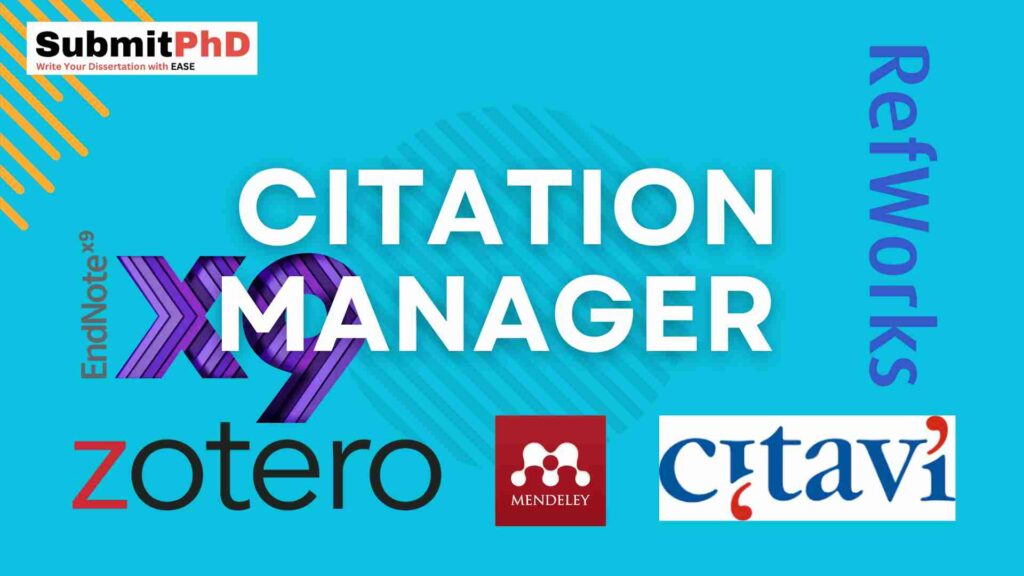

In the realm of academia and research, the integrity of one’s work is paramount. Originality and authenticity are highly prized attributes of any scholarly endeavor.
However, with the wealth of information available on the internet, it can be challenging to ensure that your research is entirely free from Plagiarism.
This is where Plagiarism Checker along with AI comes to the rescue. In this article, we will delve into the world of Plagiarism Checkers, exploring the best platforms available for researchers.
Understanding Plagiarism
Before we dive into the tools, let’s first understand what Plagiarism is. Plagiarism, in essence, is the act of using someone else’s work, ideas, or words without proper attribution.
In the academic and research spheres, this can have severe consequences, including damage to one’s reputation and career.
Therefore, researchers must use reliable Plagiarism Checkers to maintain the integrity of their work.
Plagiarism Checker AI Features
When choosing the best Plagiarism Checker for research, several crucial features should be considered:
1. Accuracy
The foremost requirement is the accuracy of the Checker. It should be able to identify even the slightest instances of Similarity and provide a comprehensive report.
2. Database Size
A vast database ensures a more thorough check. Look for a Checker with access to a broad spectrum of academic and web content to ensure a comprehensive check for Similarity.
3. User-Friendly Interface
A user-friendly interface is essential for ease of use, especially for researchers who may not be tech-savvy. An intuitive Checker can make the task of identifying Plagiarism or Similarity much more accessible.
4. Speed
Time is of the essence in the research world. A quick turnaround time for Plagiarism Checks is crucial, ensuring that researchers can efficiently address any detected Similarity issues.
5. Customization Options
The ability to set specific parameters for Plagiarism Detection can be a valuable feature, allowing users to tailor the Checker to their needs and the specific requirements of their research.
6. Cost
Consider your budget and choose a Checker that provides value for money. Whether free or paid, the chosen Checker should align with your financial constraints.
Best Plagiarism Checkers AI for Research
Now that we’ve established what to look for, let’s explore some of the best Plagiarism Checkers tailored for researchers.
Best Plagiarism Checker AI for Research, ensuring similarity-free work:
1. Turnitin
Turnitin is widely recognized for its robust database and comprehensive checks. It’s a preferred choice in many educational institutions and research settings. This Checker not only checks for Similarities in the text but also has a feature that helps instructors and educators assess the originality of students’ work, thereby preventing Plagiarism.
2. Grammarly
Known primarily as a grammar checker, Grammarly also offers Plagiarism Detection. It’s user-friendly and provides detailed reports. Grammarly’s Plagiarism Checker can be a great asset for writers and researchers who want to ensure the originality of their work, preventing instances of Plagiarism.
Also read: Best AI-Powered Tools for Literature Review
3. Copyscape
Copyscape is a web-based Plagiarism Checker that specializes in identifying duplicate content across the internet. It’s particularly handy for checking online publications, ensuring that your work remains free from Plagiarism and Similarity.
4. Plagscan
Plagscan is a versatile Checker that offers in-depth reports and customizable settings, making it suitable for researchers. It provides a detailed Similarity report that helps researchers and educators identify areas that might need improvement while preventing Plagiarism.
5. DupliChecker
DupliChecker is a free and accessible option that’s easy to use, making it an excellent choice for researchers on a tight budget. While it may not be as comprehensive as some of the paid tools, DupliChecker is still a valuable resource for those looking for a quick and easy way to check for Plagiarism, preventing any unintentional Similarity.
ProWritingAid is a comprehensive writing assistant that includes a Plagiarism Checker. It’s suitable for researchers looking to improve their writing quality while checking for Plagiarism and Similarity. ProWritingAid not only identifies potential Plagiarism but also offers suggestions for enhancing the overall writing quality, reducing Similarity issues.
This tool not only checks for Plagiarism but also assists in proper citation, a vital aspect of academic writing. Citation Machine is particularly useful for researchers who need help with formatting and citing their sources correctly, preventing issues related to Plagiarism and Similarity.
8. Unicheck
Unicheck is a versatile Plagiarism Checker with a strong focus on academic integrity. It’s widely used in educational institutions and integrates seamlessly with Learning Management Systems (LMS), ensuring that educators and researchers can prevent Plagiarism and maintain high academic standards.
9. Viper
Viper is known for its extensive database, including a vast library of academic papers, essays, and research publications. It’s an excellent choice for researchers who want to ensure their work is free from unintentional Plagiarism and Similarity. Viper also offers a side-by-side comparison of the original text and potential sources.
10. Quetext
Quetext is a user-friendly and accessible Plagiarism Checker. It provides a comprehensive scan of your text and highlights areas with potential Similarities, ensuring that your research remains original.
11. Ephorus
Ephorus is a Plagiarism Checker designed primarily for educational institutions. It offers a comprehensive check against a vast database of academic and web content, helping educators and researchers prevent Plagiarism and Similarity in academic settings.
12. Plagramme
Plagramme is a user-friendly Plagiarism Checker that provides a detailed and easy-to-understand report. It not only identifies potential Plagiarism and Similarities but also offers suggestions for improving the originality of your work.
13. WhiteSmoke
WhiteSmoke is a writing assistant tool that includes a Plagiarism Checker. It’s designed to help researchers improve their writing quality while ensuring the authenticity of their work, reducing Plagiarism and Similarity concerns. WhiteSmoke offers various features, including grammar and style checks.
14. Scribbr Plagiarism Checker
Scribbr’s Plagiarism Checker is a comprehensive tool designed for academic and research purposes. It checks against an extensive database of academic content and offers detailed feedback on potential Plagiarism and Similarity, allowing researchers to maintain the highest levels of integrity in their work.
Scribbr is an official partner of Turnitin.
Conclusion
In the world of research, maintaining the highest standards of integrity is essential. Utilizing a reliable Plagiarism Checker is the first step in upholding these standards. With a multitude of options available, researchers can choose the one that best suits their needs, ensuring their work remains unique and credible while averting issues related to Plagiarism and Similarity.
Frequently Asked Questions (FAQs)
1. Why do I need a Plagiarism Checker for research?
A Plagiarism Checker helps you ensure the originality of your work, preventing unintentional instances of Plagiarism and Similarity. It’s a crucial tool in maintaining the integrity of your research.
2. Is Turnitin the best Plagiarism Checker for researchers?
Turnitin is highly regarded for its accuracy and comprehensive checks. However, the best Plagiarism Checker for you may depend on your specific needs and preferences. It’s a good idea to explore multiple options and see which one aligns best with your requirements.
3. Are there free Plagiarism Checkers for research?
Yes, there are free Plagiarism Checkers like DupliChecker available. These free tools can be useful for researchers on a tight budget, helping them address issues related to Plagiarism and Similarity. However, it’s essential to consider the limitations of free versions in terms of database size and features.
4. How often should I use a Plagiarism Checker?
It’s a good practice to use a Plagiarism Checker every time you submit a research paper or academic work to ensure its authenticity, preventing any unintentional Plagiarism and Similarity issues. Additionally, running periodic checks on drafts during the writing process can help you maintain originality throughout your research.
5. Can a Plagiarism Checker identify all forms of Plagiarism and Similarity?
While Plagiarism Checkers are advanced, they may not catch every instance of Plagiarism and Similarity, particularly when it involves paraphrasing or the use of uncommon sources. Researchers should also have a strong understanding of proper citation and referencing practices to ensure originality and prevent Similarity issues. Maintaining academic integrity is a shared responsibility between researchers and the tools they use.


